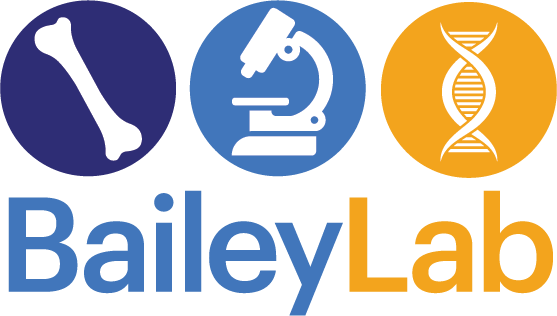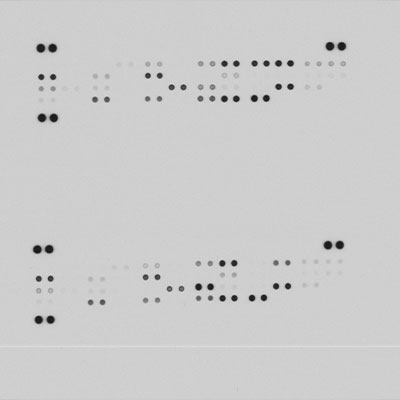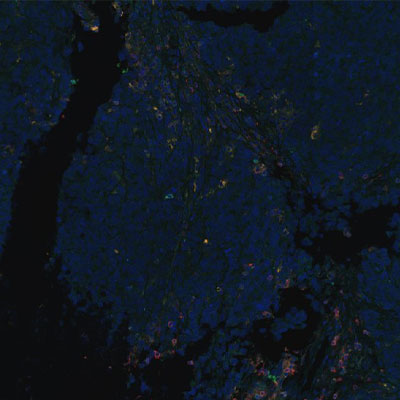The Bailey laboratory investigates the intersection of DNA damage and immunobiology in the adolescent and young adult cancer Ewing sarcoma.
Approximately 10-13% of patients with Ewing sarcoma have germline mutation findings, with a large concentration in genes that regulate DNA damage repair. DNA damage repair pathways often cross-talk with pathways regulating inflammation. We have a number of exciting projects aimed at understanding how pathogenic germline variants in DNA damage repair genes may alter inflammatory signaling in Ewing tumors.
Ewing tumors can lose STAG2 expression through somatic mutations or post-translational loss of protein expression. STAG2 participates in sister chromatid separation and influences normal DNA damage repair. Given the aggressive nature of Ewing tumors with STAG2 loss, we have a large project underway to understanding the intersection of DNA damage and immunobiology in this subset of Ewing tumors.
Radiation is a DNA damage-based treatment modality utilized in the treatment of metastatic/aggressive Ewing sarcoma. The impact of radiation on Ewing tumor immunobiology is understudied. TGF-B is an immunosuppressive cytokine that can be upregulated during radiation therapy. Our laboratory has an ongoing project examining the utility of TGF-B inhibition on enhancing the anti-tumor immune response post-radiation in Ewing sarcoma.



